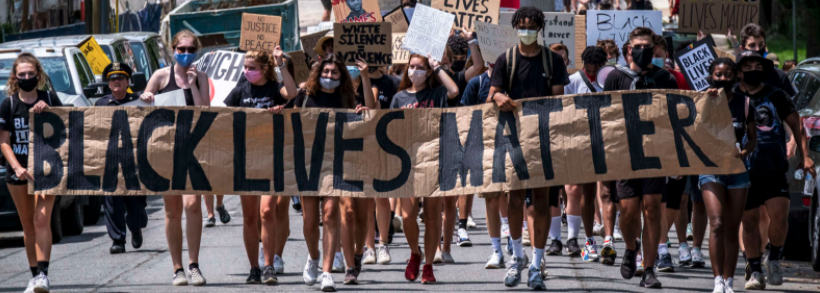Students March for Black Lives in June of 2020. Image courtesy of Tysons Reporter.
Television continued to communicate the message of the civil rights movement, particularly after Martin Luther King’s assassination, which garnered much television coverage, leading to the Civil Rights Act of 1968.
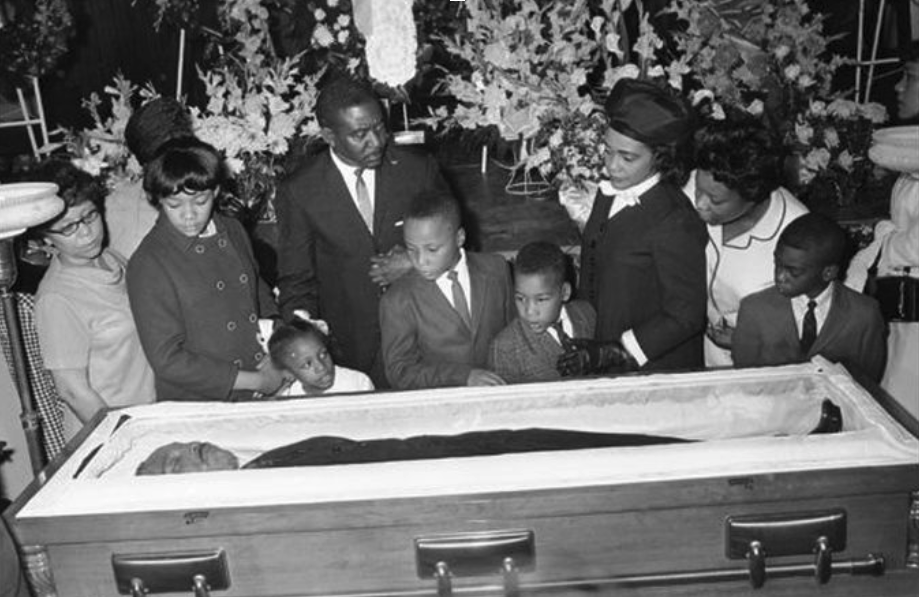
Televised funeral for Martin Luther King Jr.. Image courtesy of AJC.com.
Other Groups Who Utilized Telvision
TV’s advancement of the civil rights movement was used as a blueprint for other social and political movements. TV has communicated the message of LGBTQ+ rights to the world. Protests and demonstrations were regularly shown on television news, especially during the rise of AIDS in the 1980s among the LGBT community. This persuaded people to join the side of the victims and demand further research into treatments. Television has also helped gather people to support marriage equality, through positive news stories and depictions on television shows. Social media contributed as well, with a 2013 Facebook campaign lobbying states to legalize gay marriage. As great of an effect that television has had in promoting social and political justice, social media has an even greater capability to inspire change.
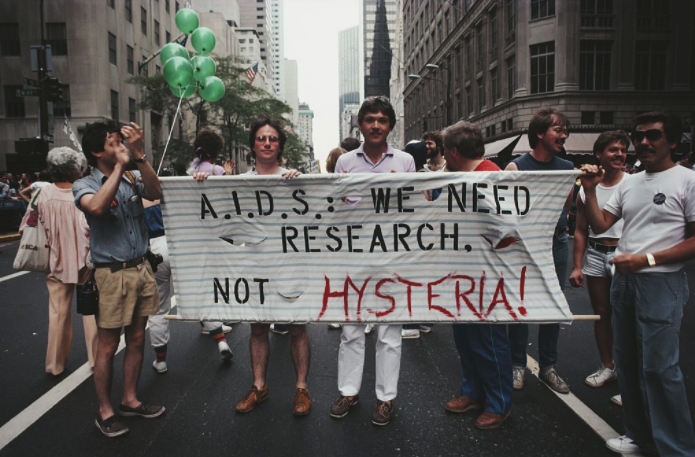
Men at a A.I.D.S rally. Image courtesy of PBS.
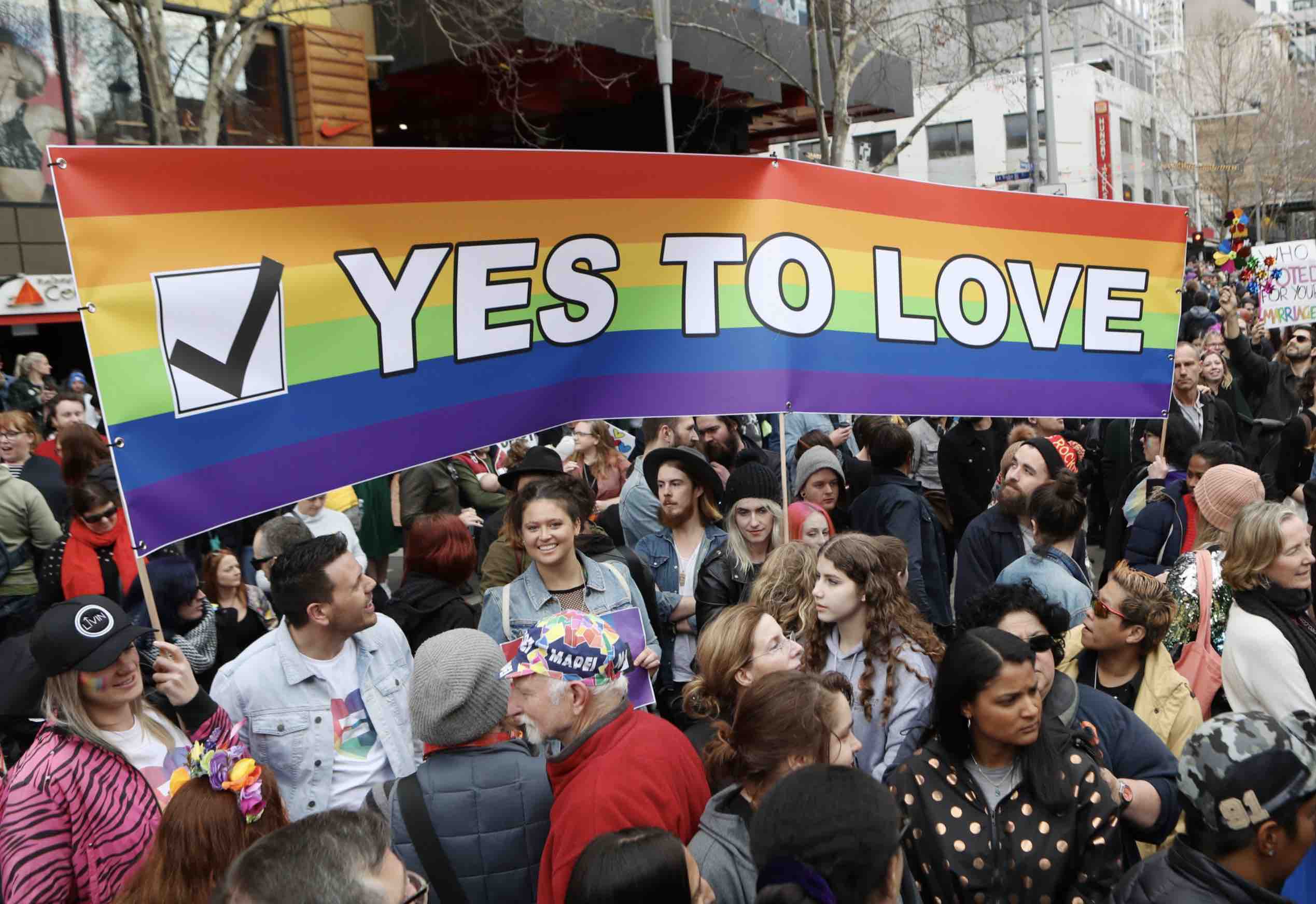
Men and women celebrate gay marriage. Image courtesy of NBC News.
Social Media and Black Lives Matter
Social media has been extremely instrumental in supporting the African-American community. Social media rallied an astounding number of people to stand behind the Black Lives Matter movement to protest police brutality and seek criminal justice reform. In 2020, the movement was greatly accelerated after the murder of George Floyd in Minneapolis by four policemen was captured on video and went viral. Every showing of the clip on television and social media magnified its impact.
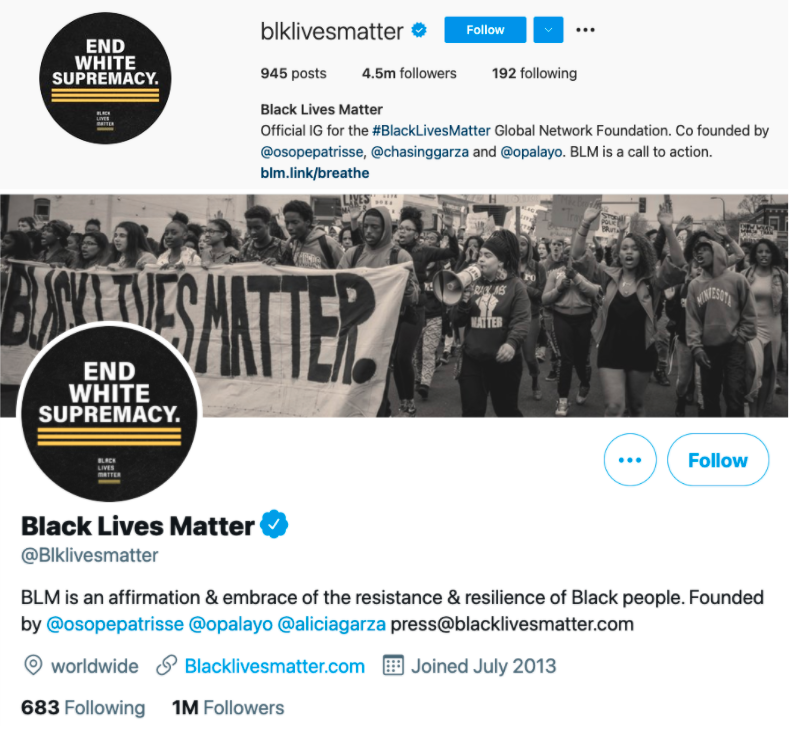
BlackLivesMatter on Instagram and Twitter. Images retrieved from Instagram and Twitter.
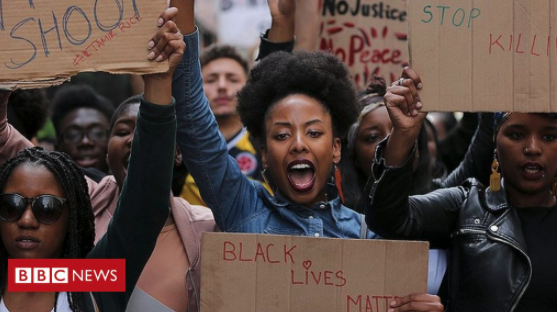
Protestors at a Black Lives Matter protest. Image courtesy BBC news.
Television was successful at inspiring change because of its broad reach and vividly accurate portrayal of the inequalities and wrongdoings against African-American community. Furthermore, television preceded and inspired social media, which has an even greater reach and is easily accessible because of cell phones, making it a more effective medium to be used in advancing the civil rights movement further.
